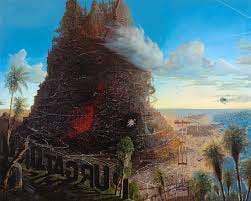“Hell is other people,” writes Sartre.
But Peter Sloterdijk writes that for Dante, the presence of others transforms hell (an unspeakable, private pain) into purgatory (a suffering that is shared by a community of the non-blessed).
At a crucial moment in the Inferno (Canto XXXIV), Dante writes, “Try to imagine me there, if you can imagine, me there, depr…
Keep reading with a 7-day free trial
Subscribe to What Is Called Thinking? to keep reading this post and get 7 days of free access to the full post archives.



